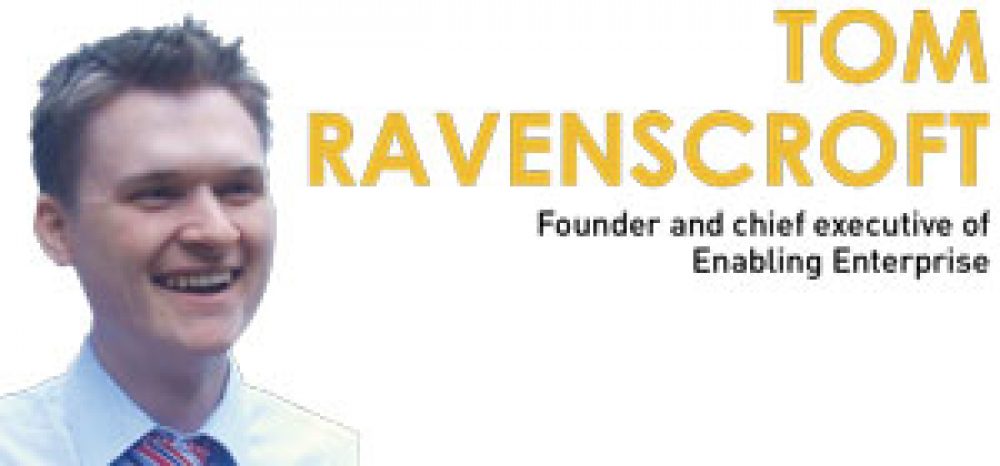As Enterprise Week is underway in schools, Tom Ravenscroft explains why entrepreneurialism is an important skill even for very young children.
The problem with enterprise, someone astutely pointed out to me, is that everyone thinks they know what it is – but each definition is different. Global Entrepreneurship Week each year brings that very much to the fore.
Indeed, I spent an entertaining three days a couple of years ago at an EU-wide conference on enterprise education. At one extreme, many advocated developing entrepreneurial students who took risks, took ownership of the curriculum and effectively displaced the teacher. The other side of the room wanted to teach their students how to file tax returns and understand the minutiae of company law.
The other side of the room wanted to teach their students how to file tax returns
One thing that seemed a given though, was that we were talking about young adults – specifically the over-12s. Why burden younger students with distracting preparations for employment or the world of work? It’s a theme picked up by the new Careers and Enterprise Company – the government-launched organisation that will act to coordinate enterprise activity across the country. Here, again, over-12s are the remit.
For me though, I’ve always felt the core of enterprise is a lot simpler – the enterprise skills that students need to succeed. Strip away the careers guidance, the techniques for CVs and the interviews, and what you have left is the irreducible core of enterprise.
So what are these skills? We have eight that we target in our work at Enabling Enterprise, but there are plenty of other configurations to cover effective communication, working with others, resilience and problem-solving.
If we focus on these skills then it is clearer why we consider enterprise to be a mainly secondary school endeavour. But when we really unpack what lies beneath the enterprise skills we want students to develop, we find two attributes underpinning almost everything else: resilience and empathy.
Resilience is the everyday magic which keeps children sticking at something. We talk about building resilience a lot more in schools now, often in the guise of growth mind-sets, and it is essential not just for ‘sticking power’ but also for being an effective problem-solver.
Empathy underpins many of the other enterprise skills: You can never be truly effective as a leader or team member without empathy and the understanding that brings of other people. Nor can you communicate effectively without an appreciation of how tone, expression and context affect both your interpretation of information from others, or how you present yourself.
For both resilience and empathy though, the evidence is clear: Both can be developed and neither is a fixed attribute but interventions are much more effective when targeted at the youngest students. Students’ apparently ‘natural’ levels of empathy and resilience appear to be formed by around 7 or 8 years-old. So you have to start really early to build the right foundations.
Building enterprise skills from Year 1 is not about developing mini-tycoons or pre-teen Apprentice contestants
Critically though, building enterprise skills from Year 1 is not about developing mini-tycoons or pre-teen Apprentice contestants. Highly effective project-based learning can systematically build these enterprise skills – whether the students are fundraising for a charity of their choice, redesigning a part of the school, or producing environmentally-friendly product designs. Our partner primary schools use a whole variety of different projects, but then also reinforce the skills by constant reference to them in other areas of learning, and ensuring that they get drawn upon elsewhere too.
Finally, we must remember what we are developing these skills for. They are certainly valued by employers – the CBI is a constant voice for higher levels of basic soft skills. Perhaps this is why they are more easily linked to the oldest students.
More than that though, they are not just about employability or entrepreneurship. They are fundamentally about building active learners and citizens – and there is no age too young to start on that.
Enabling Enterprise works with 200 primary and secondary schools and 100 employers to ensure that all students develop the enterprise skills to succeed. www.enablingenterprise.org







Another kick in the face to the guidance profession which has already been wrecked by short sighted government policies. Having actually worked an advisor in schools and colleges for over 25 years, I can say with absolute confidence that guidance is EXACTLY what young people need. Not everyone wants or is indeed cut out to be entrepreneurs, and this belief that employers can somehow “inspire” young people into action is simplistic beyond belief. What about those who want to become doctors, nurses, speech & language therapists, teachers, physiotherapists, medical physicists etc……………..? Day after day I see young people who are concerned and confused about their future, what subjects they should take at A level, how to find apprenticeships, what should they apply for at college, the list goes on. Like it or not, there is a critical role that guidance professionals can and must play in the future of our young people. To just cuff us aside as an irrelevance is both ill informed and downright wrong.